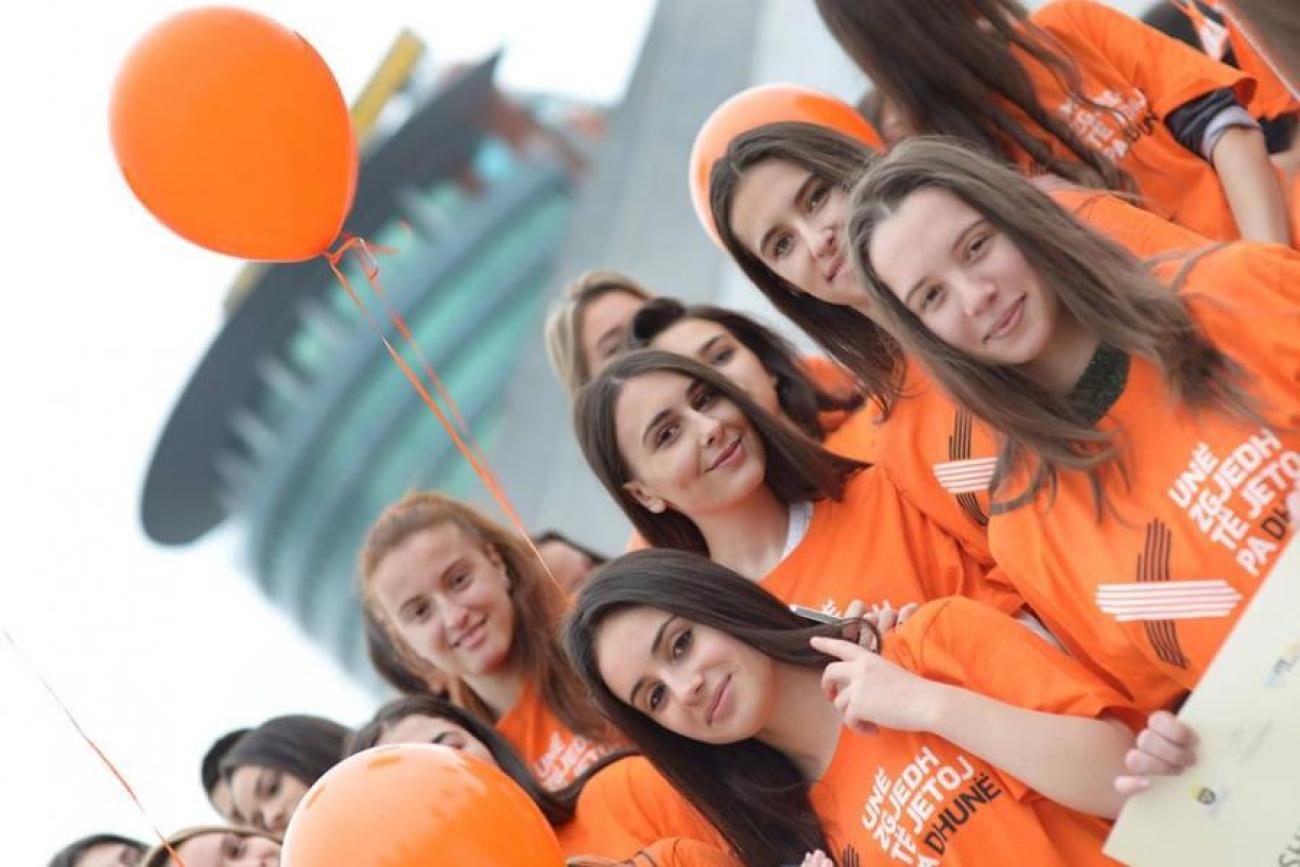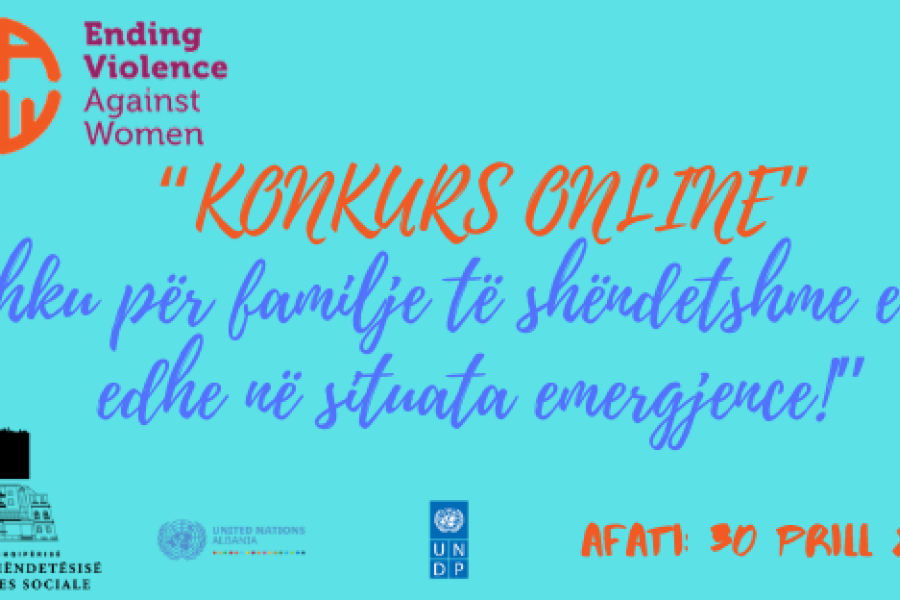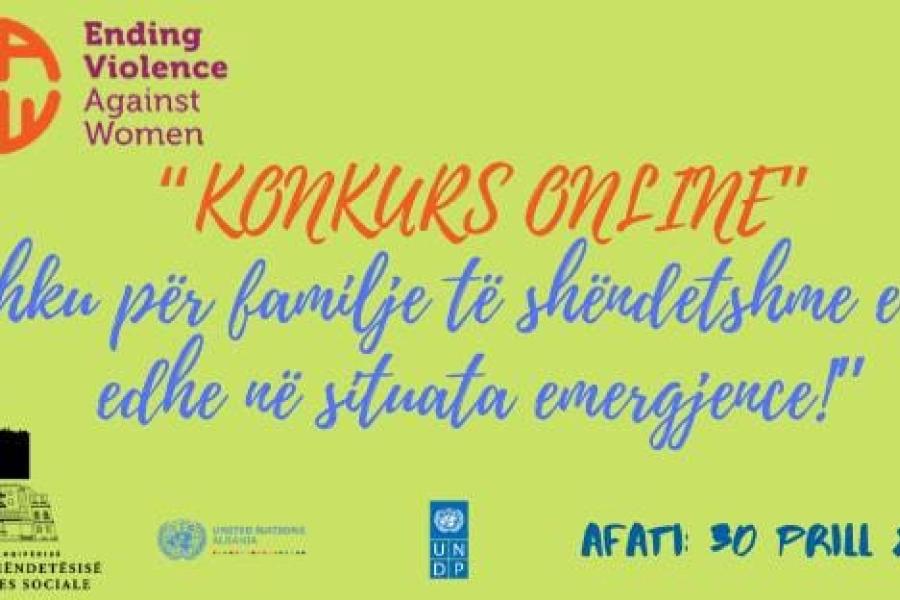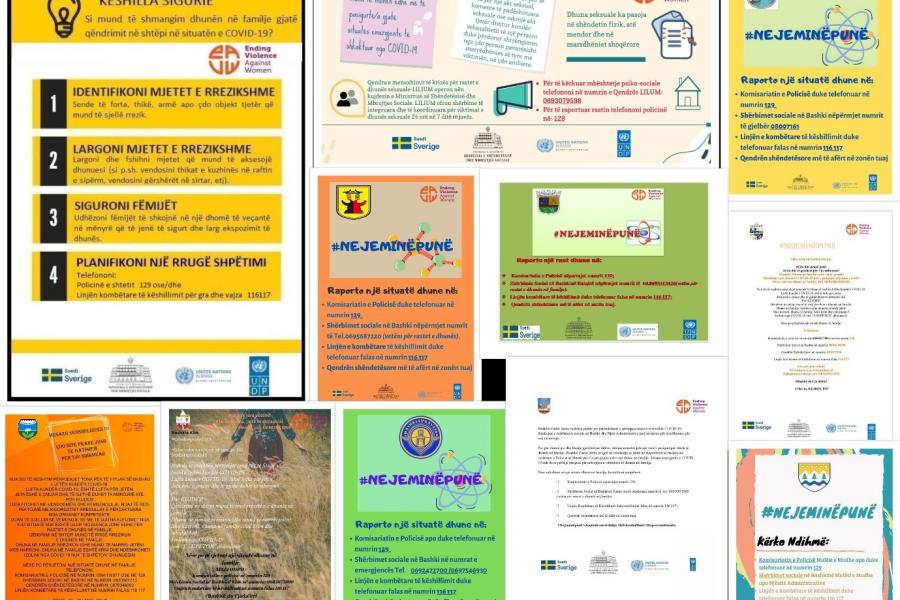UNDP and Swedish Government join forces to combat domestic violence amid COVID-19

Stay home for yourselves, for your family, the community and the medical personnel
UNDP and Swedish Government join forces to combat domestic violence amid COVID-19
“Stay home for yourselves, for your family, the community and the medical personnel,” they rightly told us. This is vital to halt the pandemic from spreading and, for most of us, it has never been easier to do our part to help.
For many others, however, home is not haven from violence and abuse.
Amid the pandemic, you are probably mistaken to think that Coronavirus health-related risk is the only “elephant in the room.” The lock down, ongoing for five weeks in Albania already, is creating fertile grounds for gender-based violence (GBV) and gender inequalities to be exposed at their best. The significantly heavy toll the COVID-19 outbreak seems to be having on marginalized women is an addition to it being a healthcare and socio-economic crisis.
Intimate-partner violence, physical or sexual violence, psychological aggression or being stalked by a current or former intimate partner — all these impact many Albanians annually according to a latest INSTAT survey supported by the Swedish Government, Australian Government, UNDP and UN Women. Among other findings, the survey reveals that one in two (52,9%) of Albanian women have experienced one or more of the above-mentioned forms of violence in their lifetime. Nearly half of the surveyed women have experienced intimate-partner domestic violence (DV), reaffirming that violence against women (VAW) and girls in Albania remains a widespread phenomenon.
School students calling for a violence-free society during the “16 Days of Activism” Campaign
245 DV cases have been reported by the Albanian State Police for the month of March, out of which 89 were criminally prosecuted — 33 offenders were arrested, and 141 protection orders were issued.
The decreasing trend from February 2020, when 321 DV cases were registered, speaks to the fact that reporting might experience a lower trend because many women must remain in self-isolation with the perpetrators of violence due to several social, cultural, economic and psychological factors.
“The DV that women and girls experience during emergencies can result in profound physical and psycho-social harm. The GBV trends previously identified in the country indicate that during the COVID-19 outbreak, incidents of DV — although not reported — are silently on the rise, given the fact that movement restrictions are put in place. At the same time, however, when many girls and women need specialized support services more than ever before, practice shows that services provided by Coordinated Referral Mechanisms (CRMs) at municipal level are likely to decrease, due to resources being diverted to dealing with the health crisis in hand,” says Marsela Allmuca, women’s rights activist.
Cries for help
Remzie, one of the GBV victims who contacted us through Facebook, came forward with her painful story.
“I feel very isolated, especially during this new situation. I don’t have a shelter. My children and I are sleeping in the shop where I work as dressmaker. The shop has closed due to the virus. At least I am happy the owners have allowed me to sleep here. I cannot go back to my house as my husband has become more violent than usual. Not even a day has passed by without him beating me and the kids. So, I left.”
Other women have also reached out to our social media accounts with “cries for help.” Lack of work, money, security, safety, and even the freedom to go out, are quoted as the main reasons fueling domestic violence incidents.
“I am the only one working now, because I have a job at a supermarket and the bar where my husband worked is closed for who-knows how long. I come home and find him frustrated, shouting, sometimes he gets violent. I’m not as worried for myself as I am for leaving my children alone with him all day now that they don’t go to school, but what other choice do I have?” Anila, another woman from Tirana, told us.
Most women still request anonymity, even when they’re asking for help.
“My children are there, so is my mother from time to time, but none of us can stop my husband from releasing his anger on us. The first week of the quarantine was slightly better, we were all optimistic things would go back to the way they were in no time. But with each passing day, no end seems to be in sight and my husband’s mood swings only get worse. I have nowhere to go — I can only ask for help,” confessed another woman in a message sent to UNDP social platforms.
Albanian well-known reporters, bloggers, lawyers, UN staff share their stories of violence against women
Going at local level
These stories come from women living in Albania’s capital, Tirana. It is worrisome to imagine for a second what happens in remote rural areas.
Being aware of the extent of danger GBV and DV victims face being forced to live with the perpetrators, UNDP rang the alarm bell and appealed to partners at local level to consider the special needs of women and girls in addressing COVID-19 related emergencies.
In 15 municipalities, with UNDP support, expedited local efforts are taking place on how to best use the specialized support services provided by state and non-state actors for DV and GBV victims during the emergency. Awareness and information stand at the heart of these efforts. Municipalities use their social media platforms to share leaflets offering legal remedies to be used in cases of domestic violence as well as providing emergency local and national hotline numbers to call if violence occurs.
To maximize public outreach and advocate for a violence-free society, municipalities launched online contests asking those interested to convey messages against violence against girls and women through art.


Putting human rights at the heart of response
To ensure that human rights are central to the GBV and DV response, UNDP provided recommendations to the Ministry of Health and Social Protection, Ministry of Interior and General Directorate of State Police on a number of issues related to emergency response for sexual and DV victims -all welcomed by both ministries. Following this, the General Directorate of Police issued a special instruction to all local police structures on how to give adequate attention to GBV and DV cases in their communities and how to take appropriate actions in cooperation with local DV coordinators in each municipality.

In consultation with Ministry of Health and Social Protection, UNDP is supporting Coordinated Referral Mechanism (CRMs) to develop a protocol that standardizes actions to be taken by multi sectorial CRMs members in dealing with urgent cases amid the COVID-19 situation.
LILIUM Center, the only one stop, multi-sectorial crisis management center for supporting sexual violence victims, supported by UNDP, is developing an internal instruction tailored for necessary procedures to adequately handle sexual violence cases in the COVID-19 context. Easy-to-read materials on sexual abuse, its consequences and how to report it are also provided through social media platforms. Sexual violence victims can also benefit from online psycho-social assistance.
In partnership with the Government of Sweden, in the context of the joint UN Programme: “Ending Violence Against Women and Girls”, UNDP supports the government’s efforts to strengthen legal frameworks and institutions, to improve services for survivors, and to address the root causes of violence by challenging social norms and behaviors and tackling the wider gender inequalities. The promise of the Sustainable Development Goals — to leave no one behind — cannot be fulfilled without ending violence against women and girls.
This pandemic is challenging and staying at home can be difficult for domestic violence victims. But there is good news: There is help. Call for help.




